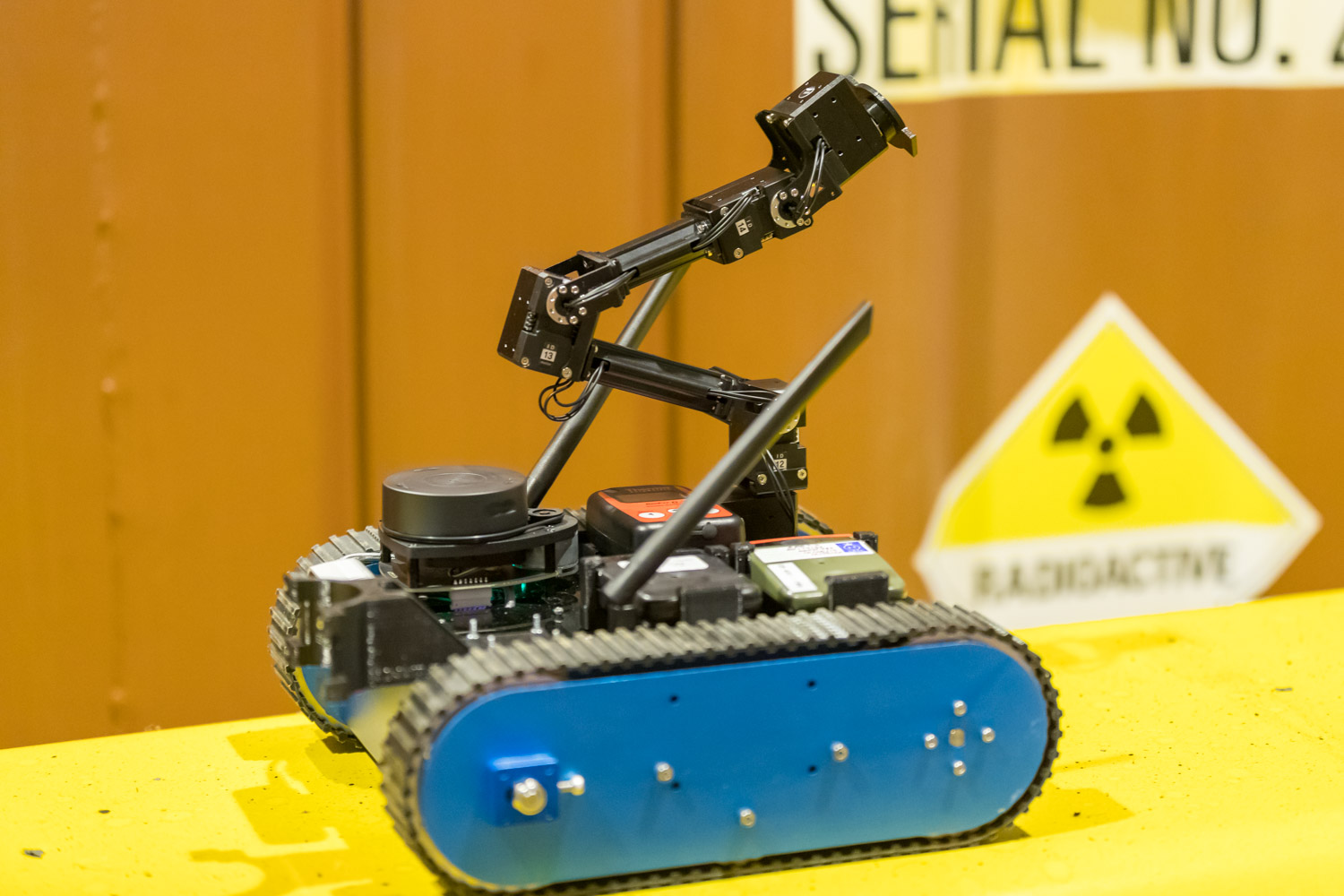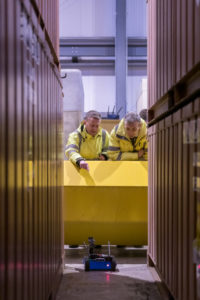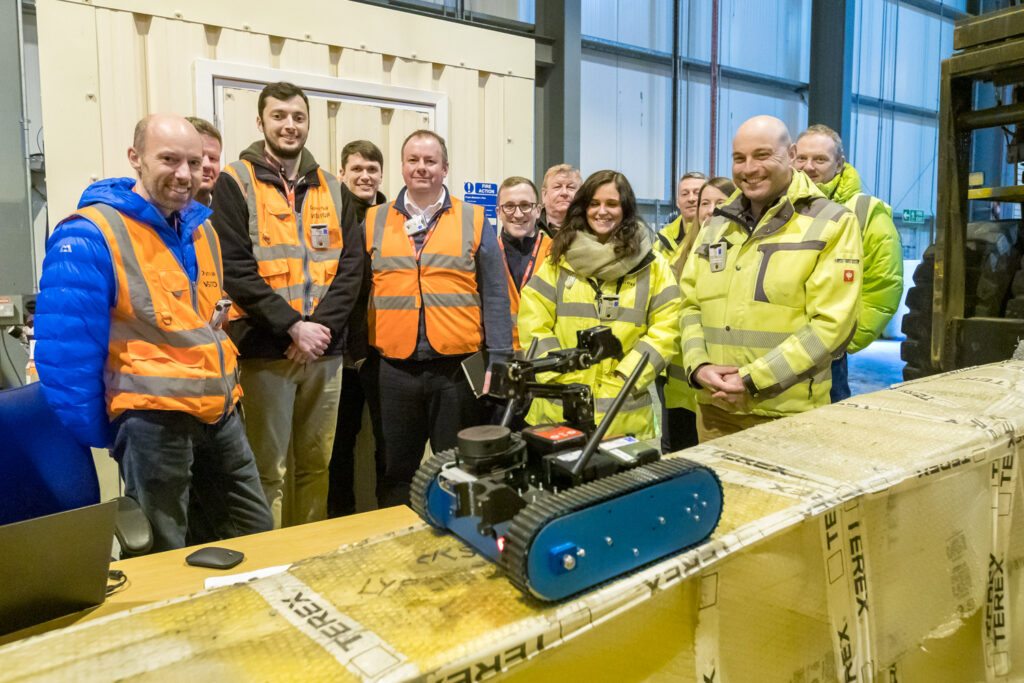The RAIN Hub has successfully trialled a robot in an active deployment at the Dounreay Site Restoration Ltd (DSRL) nuclear reactor research facility, now in the process of decommissioning. RAIN’s remit is to develop robotic and AI solutions to meet user-led challenges in the nuclear industry. A team of RAIN researchers has been working with DSRL to understand where our technology might benefit them.
 Dounreay is a significant nuclear research site undergoing decommissioning on the north coast of Scotland. Working in close collaboration with DSRL, we identified areas on site that would benefit from robotic inspection to inform decommissioning plans. The Vega robot is an ideal platform to perform essential radiation surveys in areas unsafe for humans. The Vega is a small, tracked ROV designed to be a low cost and modular solution to nuclear challenges. This exploration platform can incorporate a range of sensors, cameras and a manipulator arm, offering full physical, chemical and radiological characterisation of unmapped spaces.
Dounreay is a significant nuclear research site undergoing decommissioning on the north coast of Scotland. Working in close collaboration with DSRL, we identified areas on site that would benefit from robotic inspection to inform decommissioning plans. The Vega robot is an ideal platform to perform essential radiation surveys in areas unsafe for humans. The Vega is a small, tracked ROV designed to be a low cost and modular solution to nuclear challenges. This exploration platform can incorporate a range of sensors, cameras and a manipulator arm, offering full physical, chemical and radiological characterisation of unmapped spaces.
 Initial on-site testing and demonstration of the Vega platform has been carried out in March 2020. DSRL had enough confidence in the Vega platform at this stage that on-site trials in a low activity environment could be performed, as opposed to limiting trials to mock-up conditions as would be normal practice. The robot was deployed into an active waste store and created a geometric map with radiometric information, the gamma dose rate, overlaid onto it. Before returning to Dounreay we are developing the Vega further by integrating several radiometric detectors onto it.
Initial on-site testing and demonstration of the Vega platform has been carried out in March 2020. DSRL had enough confidence in the Vega platform at this stage that on-site trials in a low activity environment could be performed, as opposed to limiting trials to mock-up conditions as would be normal practice. The robot was deployed into an active waste store and created a geometric map with radiometric information, the gamma dose rate, overlaid onto it. Before returning to Dounreay we are developing the Vega further by integrating several radiometric detectors onto it.
“Collaboration with Dounreay has been a huge success for us,” said RAIN Director Barry Lennox. “Excellent communication has been pivotal to this success. Clear specification of Dounreay’s needs helped us develop our technologies to meet their challenges.”
In addition to the fantastic communication from DSRL, working with Innovation 2 Commercialisation (I2C) has been pivotal to the success of this project. I2C is highly experienced at facilitating the relationship between technology developer and challenge owner to commercialise innovative technology into nuclear environments. Ice-9, a University of Manchester spin-out company with expertise in developing robotic systems for use in nuclear environments, is also supporting the technological development.

Although travel plans are currently on hold, we expect to return to Dounreay later this year to complete a legacy duct survey. With I2C, we will explore other ways they can help Dounreay and other challenge owners in their decommissioning efforts.